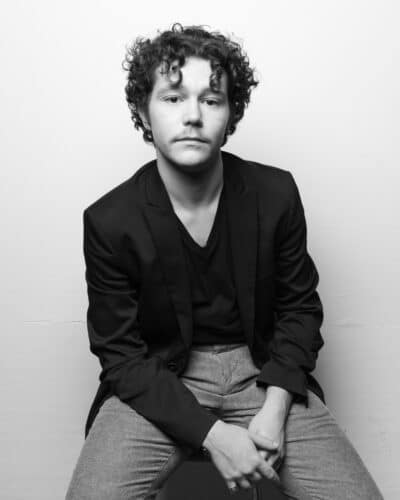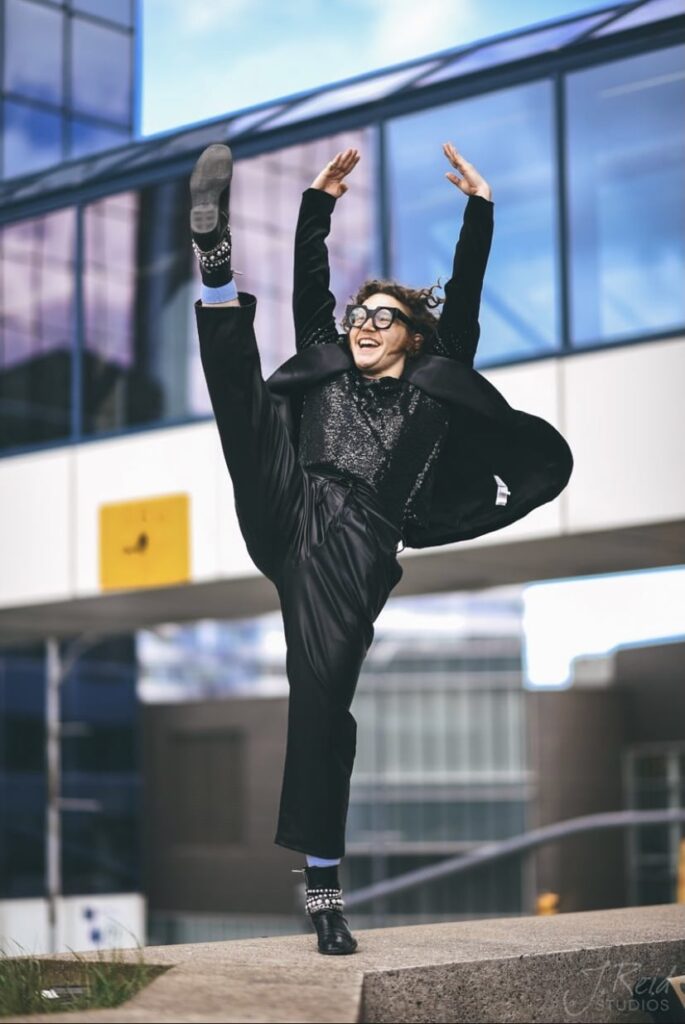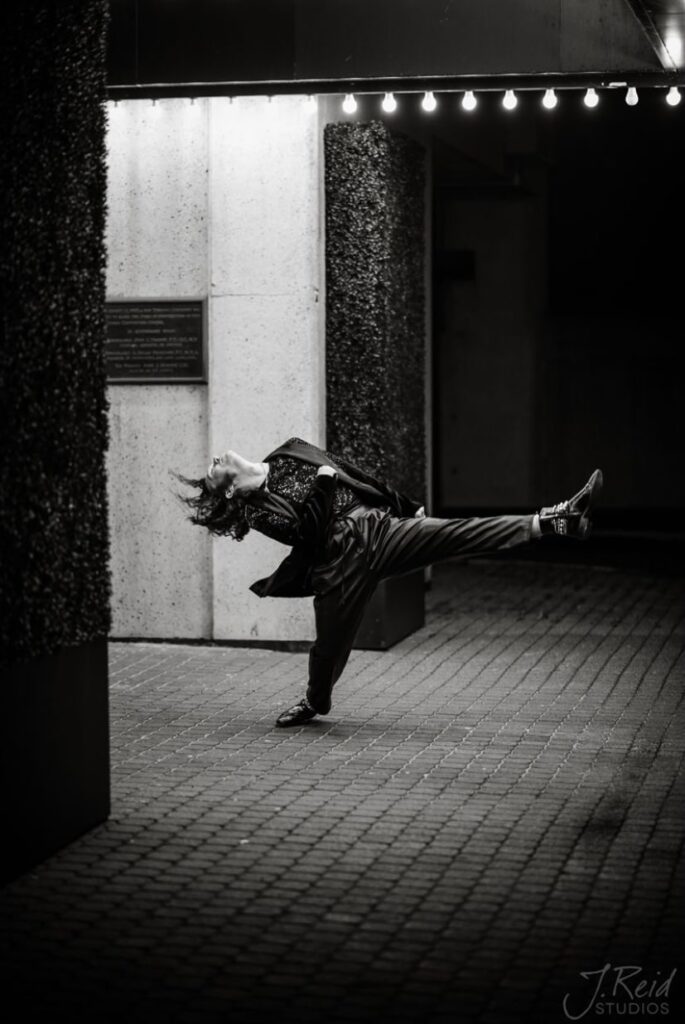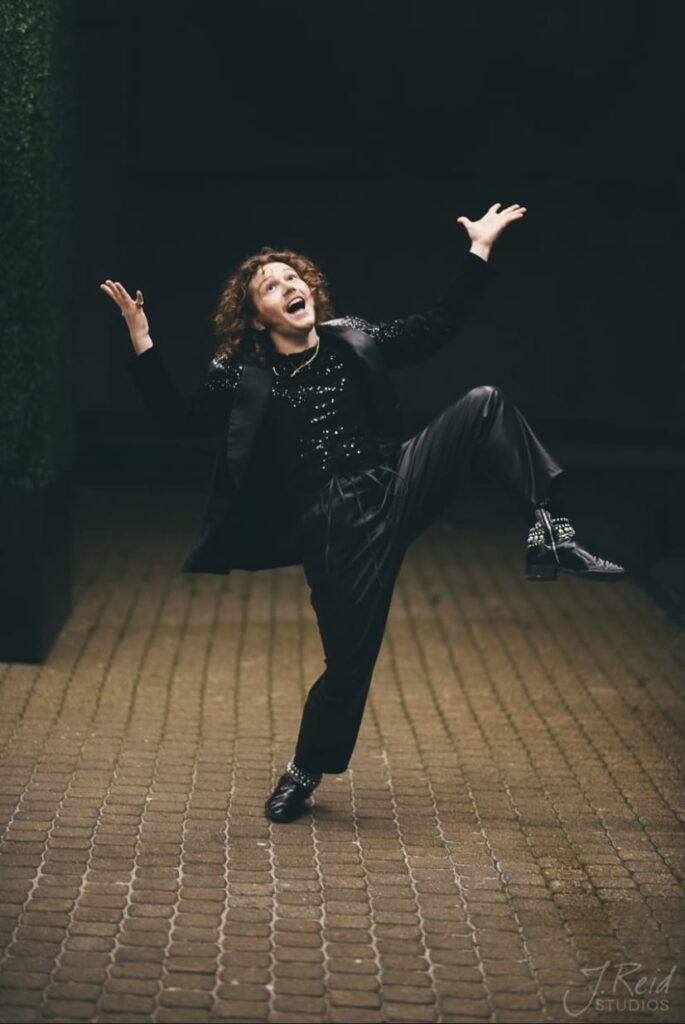Canada’s Ballet Jörgen recently launched our Boys who Dance Campaign which is aimed at abolishing the stigmas and stereotypes that male dancers are still facing today. The Campaign focuses on awareness, stories, mentorship and resources aimed for everyone to share and learn how we can do better in the dance community.
We are having our first Boys who Dance town hall on September, 18, at 2pm EDT streamed live on our Facebook & YouTube Channels. Join CBJ’s expert panel of dancers, dance educators and healthcare professionals as they share their stories and examine how we can better support boys in dance and stop bullying.
As a lead up to our town hall, we spoke with dancer Liam Eric Dawson who is originally from Bay Roberts, Newfoundland, a town approximately 45 minutes west of St. John’s. He began dancing at the age of 4 and was a local participant in two of Ballet Jörgen’s ballets as a young dancer. He is currently in his fourth year of the Musical Theatre Program at Sheridan College and has been a vocal supporter of our Boys who Dance campaign. We spoke with him about his experience growing up as a boy in dance.

“It was like a community. It really felt like a community and that you belonged.
It just seemed like everyone was on the same playing field. Even us, the local participants,
were made to feel that we were a part of something. For a young dancer, or any younger person,
I mean, I think that’s what you want. To be heard, and seen, and feel included.”
Q: How did you get into dance and how long have you been dancing?
A: It was kindergarten or grade 1, I do believe. There was this program done through, I guess the school board, called ArtSmarts, and they get different artists to come into schools and do maybe a 6-week thing, once a week, and then at the end you show it to the school. There was this local dance teacher who came in and I feel in love with it. That Christmas, I went to see the Nutcracker here in Bay Roberts – her studio does it. I remember sitting on my mom’s lap and being so transfixed. It was just magical. I wanted to be the rat king. I wanted to be Fritz. Then after Christmas break after we came back from ArtSmarts, I handed this dance teacher a letter from my parents and I said I want to be in this, and I’ve been in their Nutcracker ever since. I ended up playing Fritz for a long, long time and now the Rat King, so it’s all really come full circle.
Q: You were an LP in CBJ’s Local Participant Program for Swan Lake and Sleeping Beauty. Can you talk about CBJ’s LP program and what it gave you as a young dancer? What was it like for you being surrounded by the Company?
A: It was so great to see working professionals actually doing something that a lot of people can’t, or don’t, or are not successful at. It certainly showed a little glimmer that this could actually be something. Seeing these beautiful dancers and their technique and the physicality of them. I just remember observing one of their classes that they were doing at the arts and culture centre and remember Keelan, he was one of the principles, but just thinking oh my god his leg is like the size of me. And Hannah Mae was just so sweet.
It was like a community. It really felt like a community and that you belonged. It just seemed like everyone was on the same playing field. Even us, the local participants, were made to feel that we were a part of something. For a young dancer, or any younger person, I mean, I think that’s what you want. To be heard, and seen, and feel included.

“Of course, people then, you know, talked and thought that I was gay, or whatever the case may be, and bullied me for that. That was really hard, being bullied for something that you loved doing.”
Q: Let’s talk about the Boys who Dance Campaign. We have been getting a tremendous amount of support from our community, but people are also sharing their stories about being a male dancer and the stereotypes, teaching & bullying that they had to endure. Some of these stories are quite painful – for you personally, what was it like?
A: My experience with dancing growing up, in grade school, you know those 12 years, was some of the best times of my life. I really got to grow as an artist. I had a dance instructor who even let me do pointe, which was fantastic. We got a pair of the pink pointe shoes and then got the, not that it mattered at the time, but got the shoe dye and dyed them black and I had my pair of black pointe shoes. We all cut our ribbons together and sewed them. That was great. Through that there of course comes, in rural Newfoundland, some bullying.
In my community, hockey was very big. It’s a sports community. My grandfather played hockey – he played against the Boston Bruins. My cousin just signed with the New Jersey Devils for the NHL, which is great! But when you’re different in a small community, and especially the boy who wore suits to school every day since kindergarten by his own choice and being in a dance class with all girls, well there was a target. Of course, people then, you know, talked and thought that I was gay, or whatever the case may be, and bullied me for that. That was really hard, being bullied for something that you loved doing. It wasn’t just the boys and the girls who played sports though, outside of the dance class. It was also some people who were in the studio. I was the only boy in the studio. I was a bit overweight at the time which didn’t help, being called meatloaf or bathtub. I remember one dance class it was so bad, I just left the floor and sat under a table and stayed there. I didn’t want to come out. I felt too hurt.
That didn’t stop me from doing what I love. Yes, it sucked, but I thought it was great, it seemed like I was living me dream being Fred Astaire. That’s why I wore suits to school every day. It was the shoes and the socks and the pants and the jacket that were all the same colour to make his legs look uniform and longer. Being in the dance class with all girls, I thought that was great, as well. Other boys didn’t think that so much but that didn’t stop me. It certainly made me go at it harder and really go after the dream.

“There’s more hip hop dancers, there’s more ballet dancers, and that’s really great to see.
It’s great to see more boys doing that around here in rural Newfoundland.”
Q: It sounds like you had a teacher who was so supportive and there for you, and quite honestly forward thinking because if you were taking pointe class, I’m thinking like 10 years ago already, and she thinks, yes, boys can take pointe and it’s not even a problem.
A: 100%. There was not even a question of it. It was, yes, Liam’s a part of the class. Of course, there was still the absent mindedness in class, she would say, “come on girls”. And I’m like, “and Liam!”. So, it ended up being a “let’s go girls and Liam”. It would be nice now, you know, “come on dancers”. That has also changed. But no, she is still so progressive.
I’ve also noticed a little bit of shift in this community. I find there’s a time when a lot of people are into sports in school and then there’s a wave of arts. When I was going through it was a big sports wave, but now I’ve noticed in these dance studios that there are more boys. There’s more hip hop dancers, there’s more ballet dancers, and that’s really great to see. It’s great to see more boys doing that around here in rural Newfoundland.
“…it’s not just boys bullying boys who dance. It’s all people.”
Q: Amazing! So, then what do you think is at the root of stigmas and stereotypes of boys who dance? Is it ignorance, homophobia, a societal problem, and the expectations we have?
A: I mean that’s a big question. There’s not just one thing. I think there’s multiple factors to it. Whether it’s ignorance, homophobia, or societal problems. I also think that when other people see other people succeeding and they’re not, I have found that people start to bring you down. They don’t want you to succeed. I think there is definitely this homophobia aspect of it which I have experienced. I want to say though, it’s not just boys bullying boys who dance. It’s all people.
I don’t think it’s one problem and I don’t have the answer to that because I can’t speak for anybody who bullies. I remember this bully in school, it was just years of it and finally it was just one flick in the back of the head and I took him out. It was shocking. But we went to the principal’s office and of course they all knew the incident. We asked him, “why are you doing this?” and his only response was because “he was different”. So, because you’re different or you don’t fit the mold, it’s just hard, period.
Q: You’ve touched on a few instances of bullying, but in your training was there any one instance that stuck out and still affects you today?
A: I’ll be curt, forward, blunt, and this is just how I look at things, just me personally. No, those experiences don’t still affect me today because we were children. I just feel that something that happened in grade 8 dance class, for me it’s move on, get past it, get forward. So, it doesn’t affect me still today, but those experiences certainly shaped me. I can learn from it and how to handle different situations and shed light on the future.
It was shitty that those experiences happened, 100%. But it is a part of growing up and developing that I guess people go through. The one story of being made to feel so bad so as to sit under a table and just like hide away in a cave – that’s not me. I’m a very outgoing person so to be made to feel that small, that was difficult for me. But that was just another experience. It was just another one to add on to that day.

“There’s something about talking to another man, somebody that understands. Sometimes I feel more comfortable talking to a male. It’s nice to have somebody that maybe has those same experiences.”
Q: My last question is about the mentorship aspect of the program. Boys who are interested in being mentored are partnered with one of our male dancers to talk and offer support in dance. How important is that at an early age or any age really?
A: I never had a male mentor for dance growing up, but my teacher, of course, was always so supportive. There’s something about talking to another man, somebody that understands. Sometimes I feel more comfortable talking to a male. It’s nice to have somebody that maybe has those same experiences. Other people can relate but relation and experiencing the same thing – you can’t really compare. I mean, from hearing that question, I wish I had a male dance mentor. I think it’s really important, especially for young boys who go through these bullying situations and dance. It’s good to have someone that’s in their corner. That’s like them. That visibly they can see, that’s me up on stage. Representation.
I’d like to have a male mentor and I’m in my fourth year at Sheridan. I think you can still do it without. I’ve done it without, but it makes things a little easier for you starting out. The person that’s going to go into dance, they’re going to have to want it as well. If they don’t have that mentorship, you’ve got to make it for yourself. Yes, it’s great to have mentorship, but if you’re going to do it you’ve also got to be headstrong in that time, as well.
“…to any young boy out there, don’t listen to the noise. Just keep on dancing and you’ll get there
because no matter what you’re going to have someone who’s going to want to pull you down…
so have tough skin, stay true to yourself, and dance on air like Fred Astaire. Simple as that.”
Q: Those are all the questions I have. Do you have anything else you’d like to share?
A: I just wanted to say thank you so much Ballet Jörgen team and yourself for this interview. When I saw Boys who Dance on Instagram, it certainly brought a smile to my face. It’s certainly something that I felt comfortable getting behind and wanting to share. Regarding my personal life, I’m a closed person, so I guess thank you to you people for offering this platform. For making me feel comfortable to be able to speak. I think it’s going to shed light and hopefully bring some new boys into the theatre.
And to any young boy out there, don’t listen to the noise. Just keep on dancing and you’ll get there because no matter what you’re going to have someone who’s going to want to pull you down. It won’t be the first time you’ll experience that, so have tough skin, stay true to yourself, and dance on air like Fred Astaire. Simple as that.
Thank you for taking the time to share your experiences and hopefully inspire some boys who are dancing.
If you’d like to learn more about CBJ’s Boys who Dance Campaign and mentorship, please visit here.
Interview conducted and edited by Elise Tigges, Communications Contributor.
